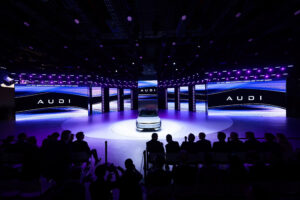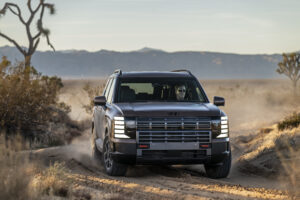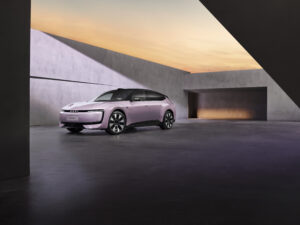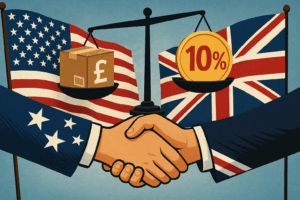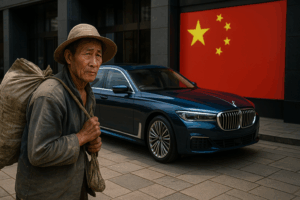Too little, too late for “green” Big 3?
By Peter Bohan
DETROIT (Reuters) – Automakers at the world’s premier auto show have pinned their hopes on “green” models but for some companies the immediate future is shaping up as a battle for survival.
U.S. auto sales dropped by 18 percent in 2008 to a 16-year low of 13.2 million, pushing financially strapped General Motors Corp and Chrysler to the brink of collapse.
In December the two were approved for $17.4 billion in emergency government loans. But the money has conditions that must be met as early as March and include more concessions from the United Auto Workers union and company debt holders.
“People are wondering, ‘Is the company going to make it? Is the company going to be viable?'” GM Chief Operating Officer Fritz Henderson told reporters at the Detroit auto show.
Henderson, vice chairman Bob Lutz and other GM executives said they were confident GM could make the changes it needs to turn itself around with U.S. government support. But they also indicated they could need further help along the way.
Ford Motor Co has not asked for government loans but told lawmakers last year it wanted a $9 billion line of credit from the government in case the U.S. economy worsens.
“We still believe there is a good chance for a recovery starting in the second half,” Ford’s Chief Financial Officer Lewis Booth said on Monday.
Display rooms at the cavernous Cobo Center were filled as usual with dozens of shiny cars, trucks and other vehicles, with staff feather-dusting the models and media milling around a reduced number of exhibits.
A number of big automakers, including Nissan Motor Co, pulled out of the show this year to save money.
For those who remained, the stars of the show were a slew of new or improved fuel-efficient and eco-friendly “green” cars like the Toyota Prius and Chevrolet Volt, an all-electric sedan General Motors rolled out as a “concept” two years ago.
GM said it was on track to offer the revolutionary vehicle in November, 2010, and on Monday announced a major contract with Korean manufacturer LG Chem Ltd to make the batteries, the key to success for all new electric vehicles.
But uncertainty continued to trump hope for most.
Lutz, the biggest booster of the Volt, was asked if U.S. auto sales were going to recover to the 15-million unit level.
“Who the heck knows?” Lutz told reporters.
GREEN: TOO LITTLE, TOO LATE FOR BIG 3?
GM, Chrysler and Ford — attacked in Congressional bailout hearings for years of producing gas-guzzling trucks and SUVs — joined Toyota Motor Corp and Honda Motor Co Ltd to tout all-electric or new hybrids.
The Japanese automakers, which have steadily whittled away at the Big 3’s U.S. market share over the years, are seen as the clear market leaders in fuel efficiency.
Toyota on Monday unveiled its third-generation Prius, the world’s top-selling hybrid, targeting U.S. sales of 180,000 units in its first year and 400,000 globally in 2010.
Masatami Takimoto, Toyota’s executive vice president of research and development, said the new Prius had a combined city/highway mileage of 50 miles per gallon, versus 46 mpg for the current model and 41 mpg for the first Prius version.
“Toyota believes that in the long run we’ll have small electric cars for short-distance driving, plug-in hybrids that run on biofuels for regular use, and on a bigger scale hydrogen fuel-cell cars will survive in the end game,” he said.
Low-cost Chinese carmakers, such as BYD, also carved out a place on the main Detroit showroom for the first time.
While the Big 3’s green push may help them earn points with skeptical U.S. lawmakers, for investors and car buyers — including big dealers like AutoNation — the jury is still out. The challenges facing all the Big 3 are still enormous.
The UAW made record givebacks on health benefits, wage rates and other issues in landmark contracts in 2007. The union has stiffened its opposition to doing much more.
All eyes are on the incoming Barack Obama administration and the bigger Democratic Party majorities in Congress. Obama backed the emergency loans extended by the Bush administration and is seen as more labor-friendly to UAW. But Obama has called for accountability, reforms and green plans of his own.
Automakers also want Obama to use tax incentives and other breaks to get shell-shocked U.S. consumers to pry open their pocketbooks and buy the new generation of green cars.
“I do think we are going to need some help in the marketplace with the new administration in terms of an energy policy that would drive demand for these vehicles,” Ford Executive Chairman Bill Ford told reporters.
“With gasoline still below $2 per gallon in some parts of the country, I think we are going to need some help.”
(Additional reporting by David Bailey, Nick Carey, Kevin Krolicki, Chang-Ran Kim, Soyoung Kim and Poornima Gupta)
(Writing by Peter Bohan; Editing by Kevin Krolicki and Carol Bishopric)

